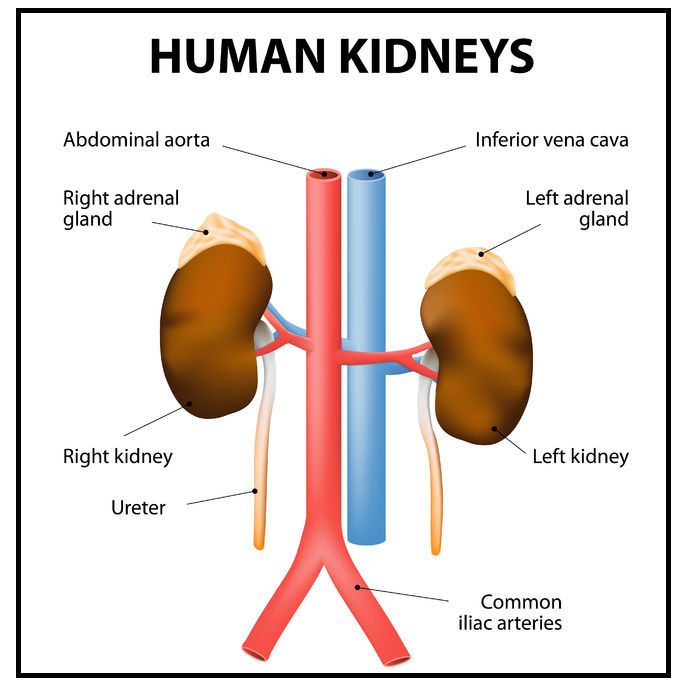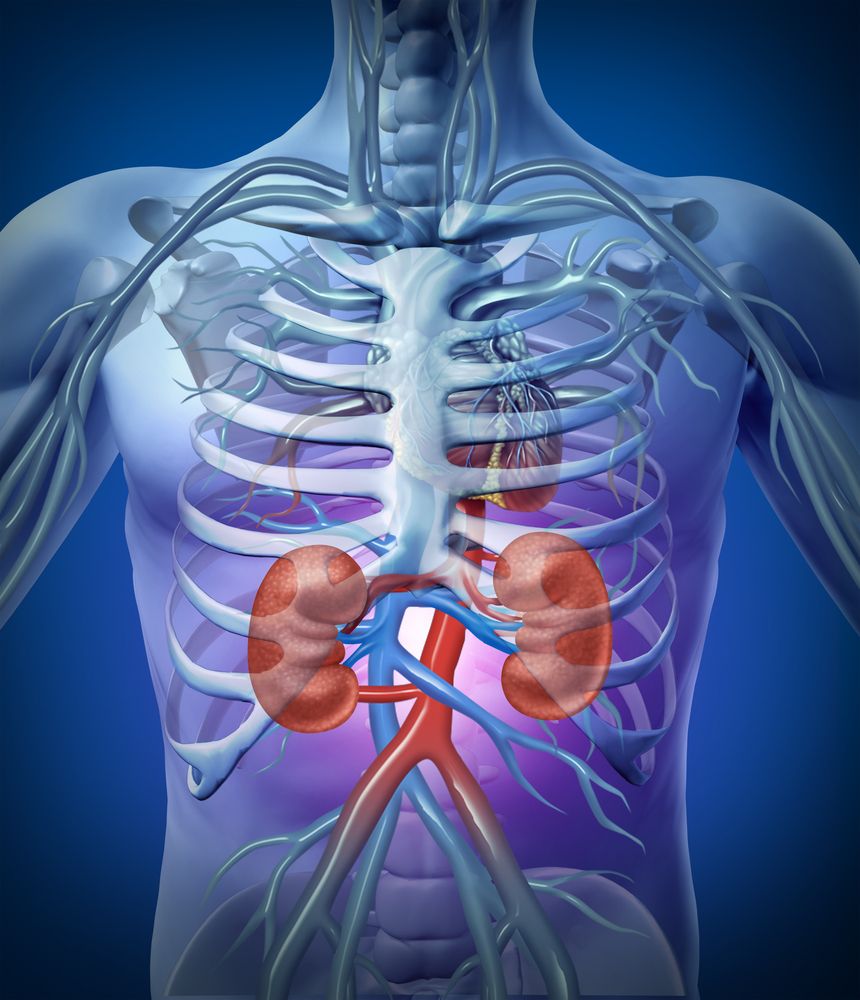Where Is Kidney Located On Human Body - is a question that many people ask. The kidneys are vital organs that are largely underappreciated, but without them, our bodies would quickly become overwhelmed with toxic waste. These bean-shaped organs are located just below the rib cage, one on each side of the spine. They are responsible for filtering waste out of the blood, balancing fluid levels, and producing hormones that help regulate blood pressure and red blood cell production.
The Structure and Function of the Kidneys
The kidneys are complex organs, and understanding their structure and function is key to maintaining their health. Each kidney is made up of thousands of tiny units known as nephrons, which work together to filter waste out of the blood. As blood flows through the nephrons, waste products like urea, excess water, and salts are removed and sent to the bladder to be excreted as urine. Meanwhile, the kidney's filtering system works to retain essential substances like protein and red blood cells.
What Are the Parts of the Human Kidney?
There are several important structures that make up the kidney, including the renal cortex, renal medulla, and renal pelvis. The renal cortex is the outer layer of the kidney, and it contains the nephrons that filter waste out of the blood. The renal medulla is the inner layer of the kidney, and it contains structures called renal pyramids that help transport urine to the bladder. Finally, the renal pelvis is a funnel-shaped structure that collects urine from the renal pyramids and directs it to the ureters, which carry it to the bladder.

Kidneys: Facts, Function & Diseases
While the kidneys are incredibly important to our health, they are also vulnerable to a wide range of diseases and conditions. Some of the most common kidney diseases include:
- Chronic kidney disease: This condition occurs when the kidneys are damaged and unable to filter waste out of the blood effectively. It can be caused by a wide range of factors, including high blood pressure, diabetes, and autoimmune diseases.
- Kidney stones: These are hard, mineral-like deposits that can form in the kidneys and cause pain and discomfort.
- Urinary tract infections: These are infections that occur when bacteria enter the urinary tract, which includes the kidneys, ureters, bladder, and urethra.
- Polycystic kidney disease: This is a genetic condition that causes fluid-filled cysts to form in the kidneys, which can lead to kidney failure over time.
Where Your Kidneys are Located & Where Kidney Pain is Felt
Because the kidneys are located deep inside the body, it can be difficult to tell when something is wrong with them. However, there are a few signs and symptoms that can indicate kidney problems, including:
- Pain or discomfort in the back or sides
- Changes in urine color or odor
- Fever, chills, or vomiting
- Difficulty urinating or a frequent need to urinate
:max_bytes(150000):strip_icc()/male-kidney-anatomy--illustration-758313113-5aa15ae80e23d90037526254.jpg)
Tips for Keeping Your Kidneys Healthy
While kidney disease can be difficult to prevent, there are several things you can do to help keep your kidneys healthy, including:
- Drink plenty of water to help flush waste out of the kidneys
- Eat a healthy diet that is low in sodium and high in fruits and vegetables
- Avoid smoking and excessive alcohol consumption
- Monitor your blood pressure and blood sugar levels regularly
- Exercise regularly to help maintain a healthy weight and reduce stress
How to Support Someone with Kidney Disease
If someone you love is living with kidney disease, there are several things you can do to help support them, including:
- Encourage them to follow their doctor's orders and take their medication as prescribed
- Listen to their concerns and offer emotional support
- Help them plan healthy meals and make dietary changes
- Offer to accompany them to doctor's appointments and take notes on their behalf
- Research local support groups or resources that may be helpful
In Conclusion
Our kidneys are incredible organs that play a vital role in our overall health and wellbeing. By taking steps to maintain their health and supporting those who are living with kidney disease, we can all work together to ensure that our kidneys continue to function properly and keep us feeling our best.
Remember to stay hydrated, eat a healthy diet, and avoid smoking and excessive alcohol consumption. If you experience any symptoms of kidney problems, be sure to consult with your doctor as soon as possible to avoid complications.

Thank you for reading this comprehensive guide on the kidneys! Remember to take care of your body's most vital organs, and don't hesitate to seek medical attention if you ever experience any concerns or symptoms related to kidney health.
Read more articles about Where Is Kidney Located On Human Body